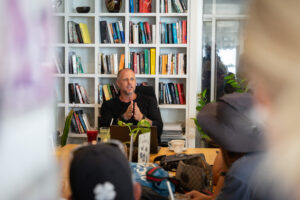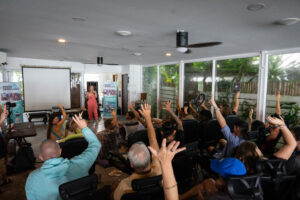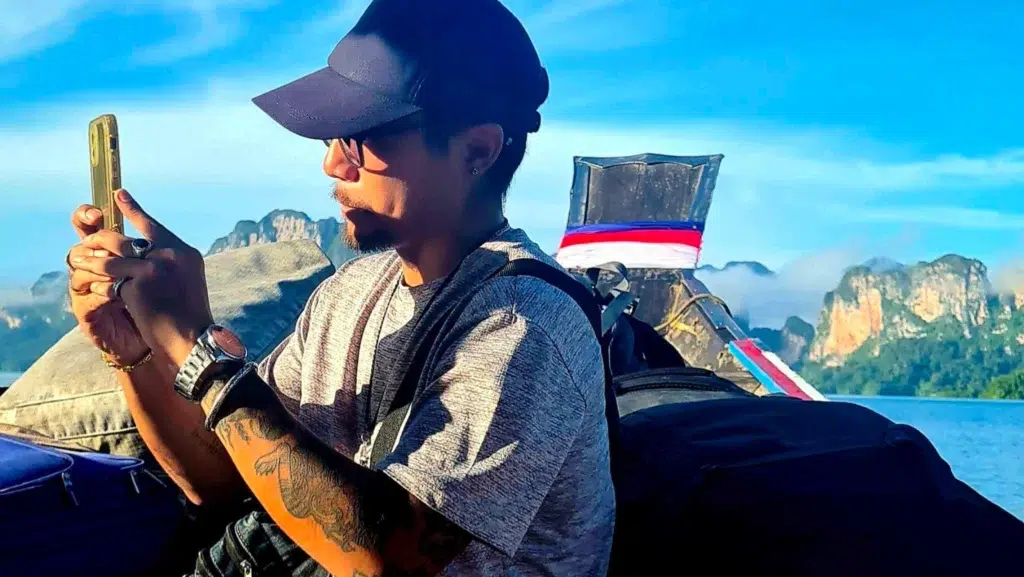Top Safety Tips -
for Digital Nomads and Long-Term Travellers
We all want to believe in the best of people and, for the most part, I think that people are generally good, and the world is pretty safe for travellers who use their common sense and do their research. That said, it never hurts to be prepared, follow simple safety tips and take precautions to protect ourselves, especially if you are a solo female traveller like I am!
Whether you are a first-time traveller just breaking into this lifestyle or a long-time nomad getting a tad too comfortable (we’re all a little guilty of this!), there are always things we can be aware of as we travel to protect ourselves, stay safe and enjoy our trips to the max.
Here is a list of nine simple safety tips you can follow to stay safe while travelling!
Note: this post does include some links to apps and other things, but this is not sponsored or affiliated in any way. These are products that I or one of the DNA team genuinely use to stay safe while travelling!
Do Your Research
Forewarned is forearmed!
I always research the country I am visiting beforehand to find out the key pieces of information so I know what to expect when I get there.
As a British national, I use the UK government site as my first port of call. This is a great resource that includes all the latest information on safety and security, entry requirements and any relevant travel warnings.
You can also check out popular blog posts and user-generated travel forums to get up to date with any relevant news and trends in specific countries. TikTok and Reddit are great options for this as they have dedicated communities discussing their experiences and sharing their top tips
These are some of the things you should look out for and familiarise yourself with.
The Most Common Scams
From the ring scam in Paris to the Egyptian whistle hustle, there are many tried and true tricks that tourists often fall for. Do your research before travelling to find out what the common tactics are wherever you are headed.
In Southeast Asia, I have found that broken metres and other taxi scams are super common. One that I have found a lot is Uber or Grab drivers demanding cash at the end of a journey rather than accepting the card payment through the app. They do this by not clicking start on the journey when they pick you up, or by cancelling once they pick you up and asking for a higher rate.
Local Laws
It is important to also learn about which of your own behaviours you need to be aware of. Laws surrounding drugs and alcohol can be much stricter than we are used to coming from Europe or the States, but also simple things like jaywalking, or not wearing a bike helmet can get you into trouble, earn you a fine or worse.
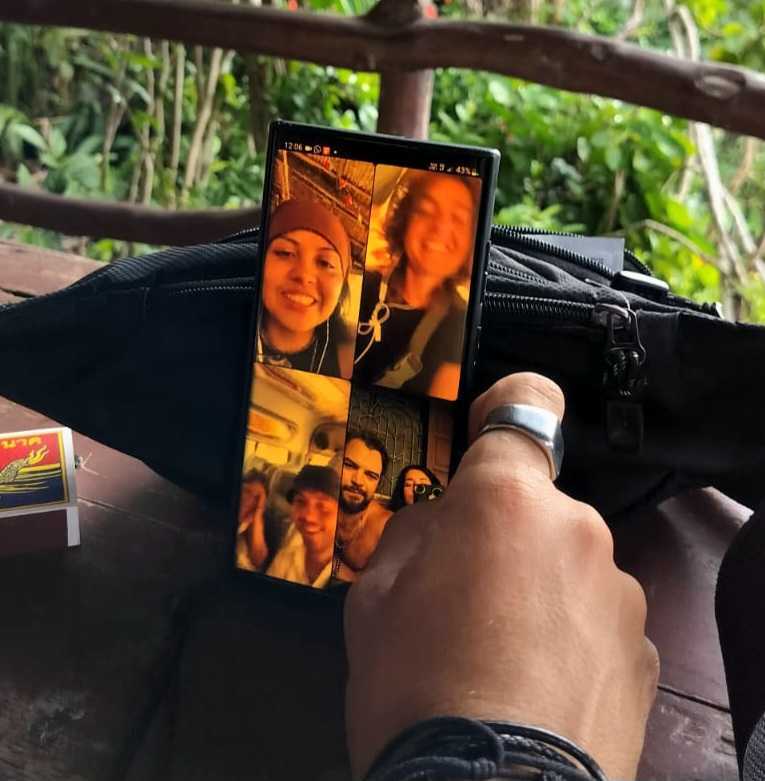
Check-In With Friends and Family
Staying connected with your friends and family can be really invaluable and there are some great apps for this.
I use Life360, which tracks and shares my location with those I have connected with on the app.
Not only are these connections important for your mental health, staving off feelings of loneliness, homesickness and isolation but it adds an extra layer of protection if other people are aware of your location, plans and movements regularly. That way they know when to worry and when to send out a search party.
Sitata is another great app that can be useful here. This app allows you to send emergency notifications to friends and family and alerts users to potential dangers or disruptions to travel in real time. It also includes tips for avoiding the latest scams and helps users locate nearby hospitals.
Get insurance
Simply the best way to protect yourself against all sorts of disasters: from lost luggage, missed flights or even broken tech. Plus, there are now some really really good travel and health insurance options designed specifically for digital nomads!
I would recommend checking out SafetyWing or World Nomads as these are two very popular and reputable brands providing insurance specifically for travellers, digital nomads and remote workers. We will put together a full review of the best insurance options for you soon!
You should also check out whether your bank or credit card has any special offers on insurance, for example, with Revolut you can get travel insurance included with their Premium plan which is only £7.99 a month.
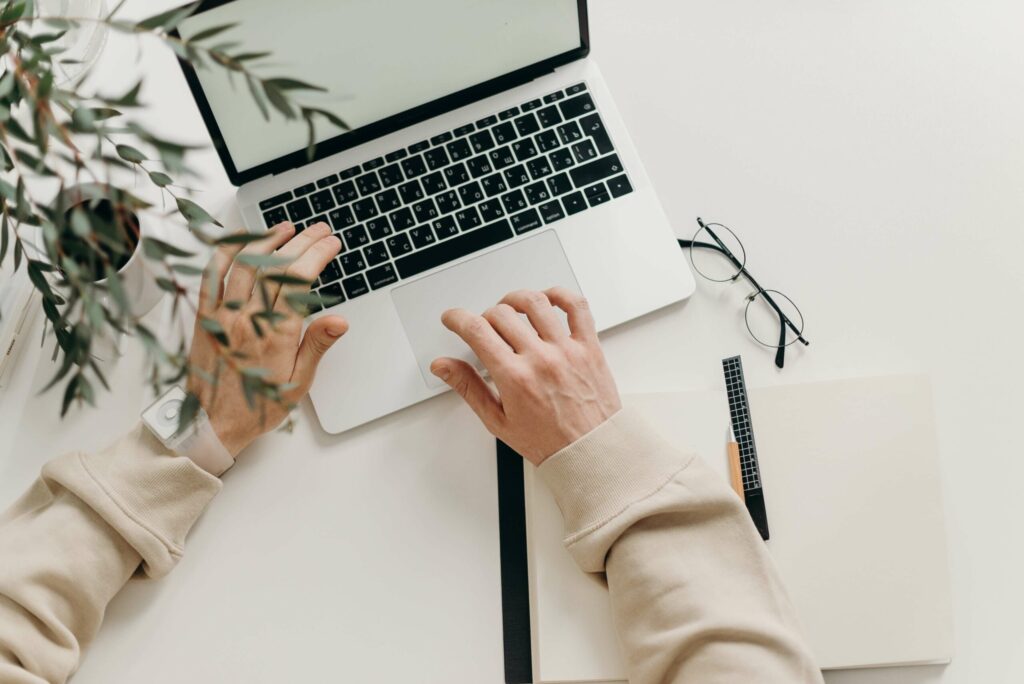
Copy Your Documents and Save Important Information
This is for a worst-case scenario situation of course, but you never know when it might come in handy and you’ll be grateful for the forethought!
If something does happen, you may not have time to find the information you need, or you might not be in a position to if you are sick or injured, or even just too stressed and panicked to think straight. Instead what you can do is make sure this information is easily accessible for yourself and others.
You can create an “Emergency Plan” to follow if things go badly. Save it on your phone in the notes, and consider writing out a physical copy to keep in your wallet, purse or bag. If you do keep a physical copy, make sure you do not lose it! It will contain very personal information that you don’t want to fall into the wrong hands.
You should include:
- Phone numbers for local police or ambulance services
- The nearest embassy for your country, and their phone number
- The address of your accommodation
- Contacts for your next of kin
- Relevant medical information: any allergies or medical conditions you have, and medications you take, your blood type if you know it
You should also save this information in the cloud along with copies of your passport, insurance and other important documents. Email it to yourself, and your next of kin or a trusted contact.
That way, if something goes wrong while travelling, you’ll always have access to your documents, plus know exactly who to call and where to go for help. And if you are out of action, others will easily be able to contact your family and the relevant authorities, getting you the help you need.
Protect Your Personal Belongings
As you travel, you’ll hear the stories of entire dorms or even hostels getting hit by thieves while people are out exploring. Laptops, passports, money, credit cards, clothes all gone…
To make sure you don’t fall victim to anything like this, make sure you have a padlock for lockers as accommodations don’t always provide them. Always ensure any valuables are locked away out of sight, or kept on your person at all times.
Money belts, sling bags and crossbody bags are popular choices for many travellers as they allow you to keep your valuables on you and in your sight at all times, without relying on pockets or handbags which are easy targets for thieves and pickpockets.
You should also be sure to keep an eye on your belongings in crowded places, or even better keep them attached to you. If you’re on the bus or in a cafe, for example, loop the straps around your leg or the leg of your chair.
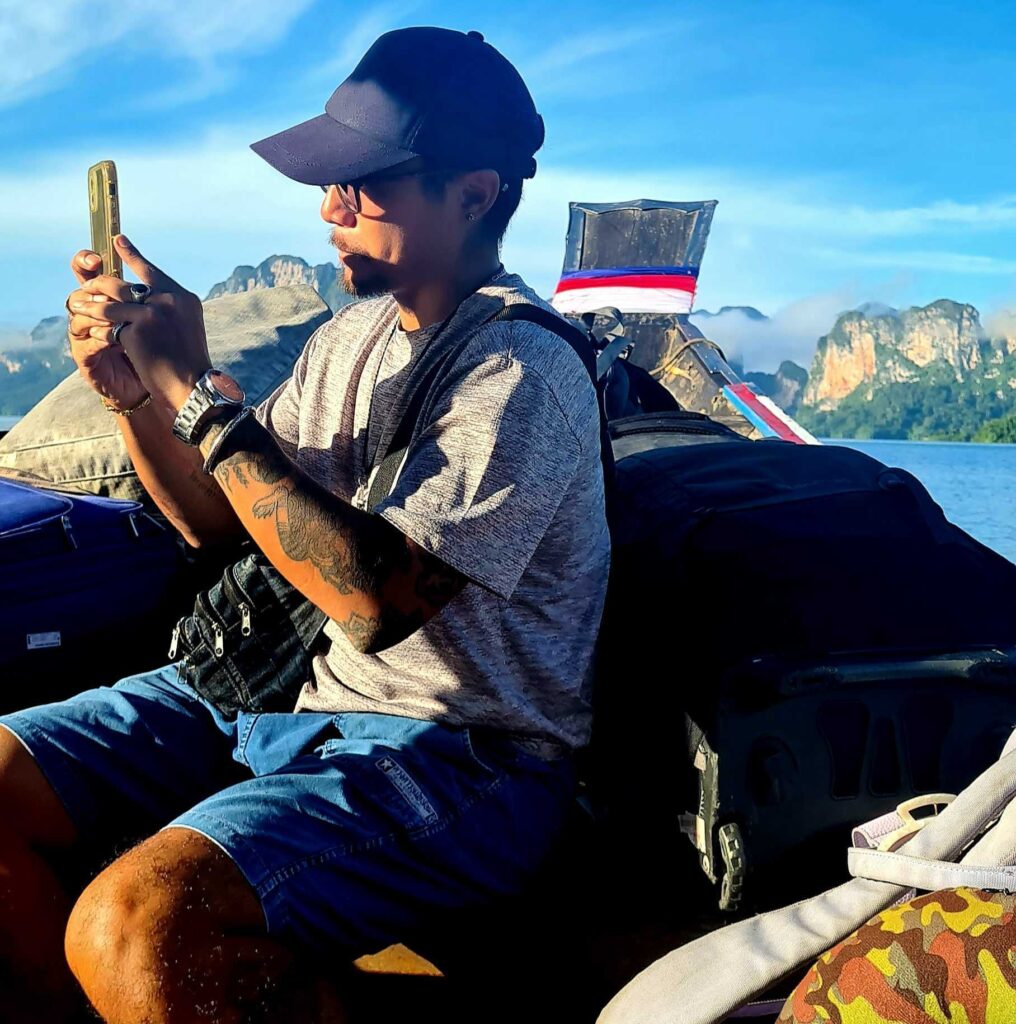
Try To Blend In
Look I know those elephant pants are unbelievably comfy but nothing shouts tourist more than that bold pattern. Looking like an obvious tourist can sometimes make you a target for scams, pickpocketing, or other petty crimes, blending in can reduce this risk to some extent.
Try to dress modestly, and avoid overly flashy attire or displaying expensive gadgets as these can draw unnecessary attention, which might not always be positive.
Ask For Help and Advice
Asking for help is an incredibly important skill. It doesn’t compromise your independence or bravery but is a strategic tool to navigate unfamiliar environments, ensure your safety, and potentially enrich your travel experience.
Don’t hesitate to reach out, whether in person to locals or to other travellers, or online in forums or community groups dedicated to giving advice – the kindness of strangers can go a long way, especially if you are a long-term and/or solo traveller.
You can even DM us on social media, or join the Digital Nomad Adventures Community on Facebook to find any help or support that you might need!
By reaching out for help, you create an opportunity to connect. This can foster trust and goodwill, potentially providing you with extra support or guidance during your journey. Additionally, asking locals for advice or help could translate to discounts or even invitations to experience authentic local life!
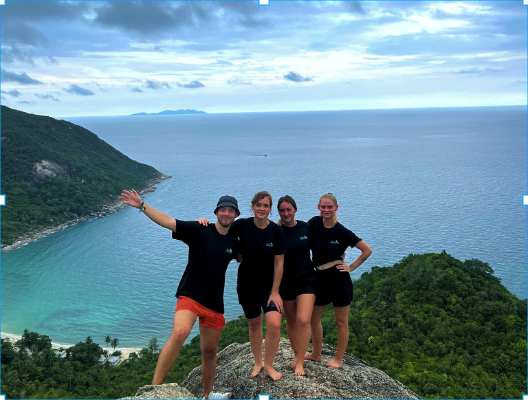
Trust Your Instincts
Always be aware of your surroundings and trust your gut instinct. If something doesn’t feel right, it probably isn’t.
Travel exposes you to new environments and situations, often pushing you outside your comfort zone. This naturally prompts heightened awareness, and your instincts serve as a crucial early warning system. Whether it’s a subtle feeling of unease in a crowded market or a gut feeling about a shady tour guide, ignoring these nudges can land you in uncomfortable or even dangerous situations.
Our brains unconsciously process information beyond our conscious awareness. This includes subtle cues like body language, facial expressions, and even environmental details that our conscious minds might miss. Trusting your gut lets you tap into this reservoir of processed information, allowing you to avoid situations that feel “off” even if you can’t pinpoint the exact reason.
However, it’s also important to note that instincts can sometimes be influenced by biases or fears. Therefore, you should always try to balance instinct with rational thinking, especially when assessing unfamiliar but non-threatening situations. Over time, as you gain more travel experience, your instincts can become even more finely tuned to the environments you encounter.
Safety is a top concern while travelling, but it shouldn’t dominate your every waking thought. By following these safety tips you can minimise your risk of experiencing any problems while embarking on your digital nomad journey! The most important thing is to be aware of your surroundings and use your common sense. With a little planning and preparation, you can have a safe and enjoyable trip.
Remember, while it always pays to be prepared, don’t let fear hold you back. Stay aware, be respectful, and embrace the adventure!
AND… if all the planning and prepping is getting too much and causing you to burn out, we’re here! You can always reach out for any help and advice, or even join us on one of our upcoming tours. We’ll all watch each other’s backs, pick each other up & laugh about the fails together!
Is there a topic you want to learn about? Let us know in the comments, or get in touch via social media!
